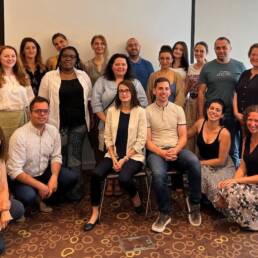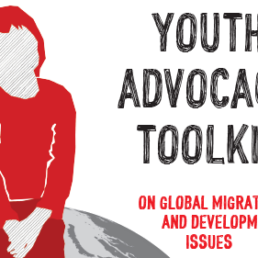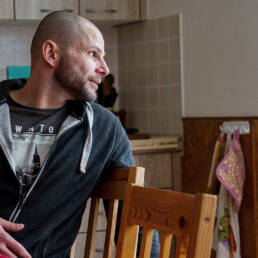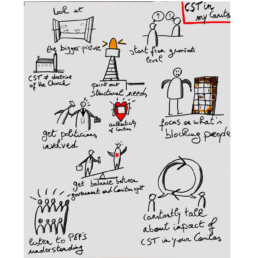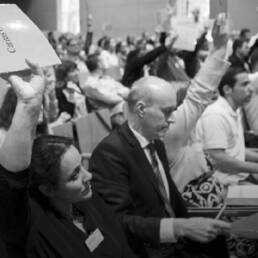Author
Florian Pomper
Head of Innovation
Caritas Vienna
Within Caritas Europa’s strategic framework 2021 – 2028, innovation is now a cross-cutting theme. Why is innovation so important for Caritas Europa? From my perspective this question can be broken down into three main arguments:
First and foremost: we need innovation to constantly fulfill our main purpose: to serve and support people in need in the best possible way. Even if we have the best possible services and projects today, that doesn’t automatically imply that they will still the best tomorrow. The needs of people are changing, new social problems arise but also the tools that we have at hand are steadily developing. If we are serious about our mission to offer the best possible support to people in need, it is essentially an obligation for us to constantly work on even better and more impactful solutions.
Secondly, innovation does not only have to be focused on the service itself. It can also focus on the funding aspect of services and projects. Although this is not generally the focus when Social Innovation is discussed, these kinds of innovations are also of relevance for Caritas.
Thirdly, innovation is important for Caritas Europa because it helps to secure Caritas a leading role in the European Social Sector – especially in the light of new organisations and companies entering the stage.
With this knowledge of the importance of innovation within the network, how can we work to promote innovation and innovative practices in Caritas Europa?
We need to understand that innovations are the result of a working process. Innovations don’t just fall from the sky. Innovations are not the same as “ideas”. Ideas are sometimes the starting point but it always needs additional work, testing, learning and developing to create a successful innovation out of an initial idea.
Developing innovations requires specific mindsets, skills and resources and can be facilitated by specific innovation tools and formats:
It needs a particular mindset, an understanding of the importance of innovation, the willingness to challenge existing solutions and assumptions, the openness to collaborate and to welcome ideas from outside and the courage to try things out and to learn from failures and setbacks.
- It needs resources – the sharing of skills through trainings on how to design and facilitate Innovation-projects.
- It needs time – of people who work on the innovations and it needs money, depending on the nature of the innovation project.
- And thirdly we need specific structures or platforms for fostering innovation, for example Innovation Labs or Innovation Sprints or the Caritas Europa Innovation Festival.
Given all this challenges, the good news is: we as Caritas Europa are in a very privileged situation to have our European wide and even global network. We have the great opportunity to collaborate on innovation. To join forces and share solutions instead of working separately on the same issues and staying in our silos. This is our strength as a network and how innovation as a “cross-cutting theme” can be fruitful. As Caritas, we hope to use this strength to build a better world, to innovate for good.


